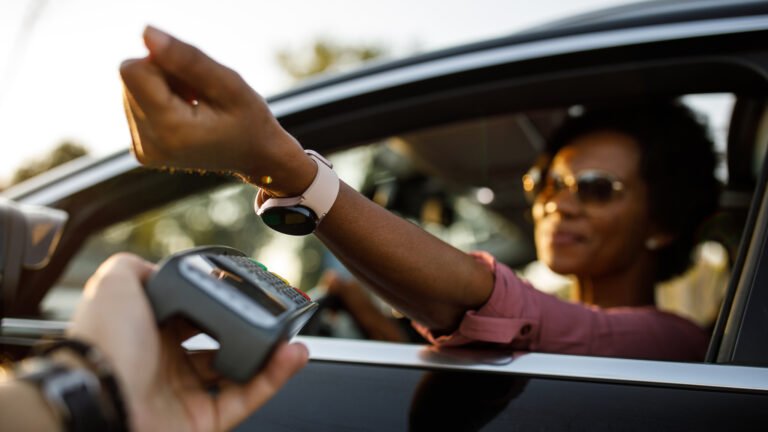In what could arguably be labeled as one of the most consequential Supreme Court terms in decades, one particular case stands out within the realm of technology and privacy: Carpenter v. United States, No. 16-402.
This case looms large as the Supreme Court seeks to determine the extent to which cell phone records can be used by law enforcement agencies to charge someone with a crime or to build a case against them. One lawyer working the case called it “one of the most important Fourth Amendment hearings in generations,” which is no stretch of the imagination—the case could ultimately set the standard for law enforcement in the digital era as it examines and debates modern surveillance law. The key detail in this case is whether law enforcement can legally obtain information regarding an individual’s cell phone location data, which is kept by cellphone companies and generally regarded as private.
The Case
The plaintiff, Timothy Carpenter, was convicted in multiple armed robberies over a period of two years. A co-conspirator in the case confessed and passed along cell phone numbers to law enforcement from multiple conspirators, including Carpenter’s. The government applied for three different court orders for cell-site records pertaining to the numbers, including “at call origination and at call termination for incoming and outgoing calls” for Carpenter’s phone. This data was used to depict Carpenter’s movements over multiple months, which placed him at ranges of half a mile to two miles from the robberies at the time they occurred. Mr. Carpenter is arguing that prosecutors failed to obtain a warrant for the information, violating his Fourth Amendment rights against unreasonable searches and seizures.
Legal Precedent
Recent Supreme Court rulings have limited the ability of law enforcement and government to track potential suspects via cell phones and location data. United States v. Antoine Jones, No. 10-1259 placed restrictions on using GPS devices to track a suspect, while Riley v. California, No. 13-132 led to requirements for a warrant to search a cellular phone.
These two rulings appear to work in favor of the plaintiff, but another landmark historic case works decisively against him. In Smith v. Maryland, heard in 1979, the Supreme Court ruled that a robbery suspect could not expect a right to privacy on data that was turned over to a third party. The principle of “third-party doctrine” established that customers who voluntarily turn information (e.g. a phone number) over to a third party (e.g. a phone company) can no longer reasonably expect a right to privacy regarding that information. Federal appeals courts have successfully cited this doctrine in past cases, arguing that cell phone companies are ‘third parties’ for whom government investigators should not require a warrant to acquire data.
The Arguments
The plaintiff is arguing that the Fourth Amendment does not allow for the “warrantless seizure and search of historical cell phone records revealing the location and movements of a cell phone user over the course of 127 days.” The United States redrafted the question in their brief to ask, “whether the government’s acquisition, pursuant to a court order issued under 18 U.S.C. 2703(d), of historical cell-site records created and maintained by a cellular-service provider violates the Fourth Amendment rights of the individual customer to whom the records pertain.”
Ultimately, as The Washington Post’s Orin Kerr points out, this case will be about two questions: Does the collection of the records constitute a Fourth Amendment search? And, if so, does the search require a warrant?
Silicon Valley Chooses Sides
Silicon Valley will be watching closely – fourteen prominent technology and telecom companies are urging the US Supreme Court to rule that Fourth Amendment protections apply to the cellphone location data. The signatories, which include Apple, Google, Microsoft, Facebook, and Verizon, filed an amicus brief with the Supreme Court in August, arguing that the phone data should not be accessed by law enforcement without a warrant or court order. Verizon’s support is particularly surprising, as it breaks from a longstanding tradition of telecom companies acquiescing to law enforcement requests. But at the same time, Verizon’s stance reflects a new reality of the telecom business model, which is that they look and act more like technology companies, where privacy is much more contentious issue.
Why is This Case Important?
The Supreme Court’s ruling on Carpenter v. United States will determine whether the basic framework of modern surveillance law will remain in place—that is to say, whether the actual contents of communication are protected by the Fourth Amendment, while records about these communications are not. It will define what kind of network surveillance invokes the Fourth Amendment and how the Fourth Amendment applies in these cases, and as such could define or reshape law enforcement strategies and policies going forward.
That last point about law enforcement is particularly important. Cell-site records figure prominently in this case, but it is difficult to imagine a scenario where the Supreme Court justices can rule on the case without also providing a framework for how the Fourth Amendment applies to many other forms of surveillance, such as visual surveillance, obtaining traditional phone records, obtaining e-mail and chat transactional records, obtaining credit card records and so on.
Craig Silliman, Verizon’s executive vice president for public policy and general counsel, summarized the case’s importance thusly: “Although the specific issue presented to the Court is about location information, the case presents a broader issue about a customer’s reasonable expectation of privacy for other types of sensitive data she shares with any third party…our hope is that when it decides this case, the Court will help us better apply old Fourth Amendment doctrines to an evolving digital era.”
Oral arguments on this case are scheduled to begin on November 29, 2017 before the Supreme Court.







